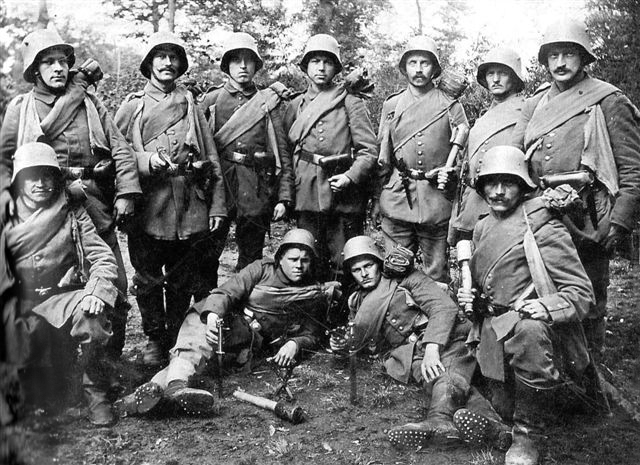A German WW1 Close Combat Knife In Original Scabbard
With maker marked blade. While the conventional image of World War One trench warfare is of massed numbers of rifle-armed men going ?over the top? into a No-Man?s-Land of barbed wire, machine-gun fire, artillery barrage, and almost certain death, this was a high-cost tactic of the earlier part of the War, and had been largely abandoned by its later years. The widespread tactic was to dig advance trenches called Salients out from one?s own front trench, into No-Man?s-Land, and then bombard the enemy?s front trench, so that they would fall back to their auxiliary trenches behind. Units of men could then be sent across a short stretch of No-Man?s-Land from the Salients, to occupy the trench and hold it. These larger drives required much preparation and reconnaissance if they were to work, however, and so Trench Raiding became increasingly common as the War went on. In Trench Raiding, small numbers of hand-picked volunteers crept across No-Man?s-Land at night, unseen by the artillery ?spotters?, lightly armed with firearms, grenades, bayonets, knives, steel piping and other improvised clubs, and weapons such as this. Whether intended for undertaking or repelling a Trench Raid, the size of the close combat knife combined with its ease of use in unskilled hands, was exactly what the average soldier needed. The intention was a quiet, quick surprise attack, to kill small numbers of men, destroy or seize larger weapons - such as heavy machine guns - map out the location and contents of the enemy trenches, seize communications and documents. This would generally keep the enemy in a sleepless, terrorised state therefore sapping their alertness and morale.
Code: 19618







